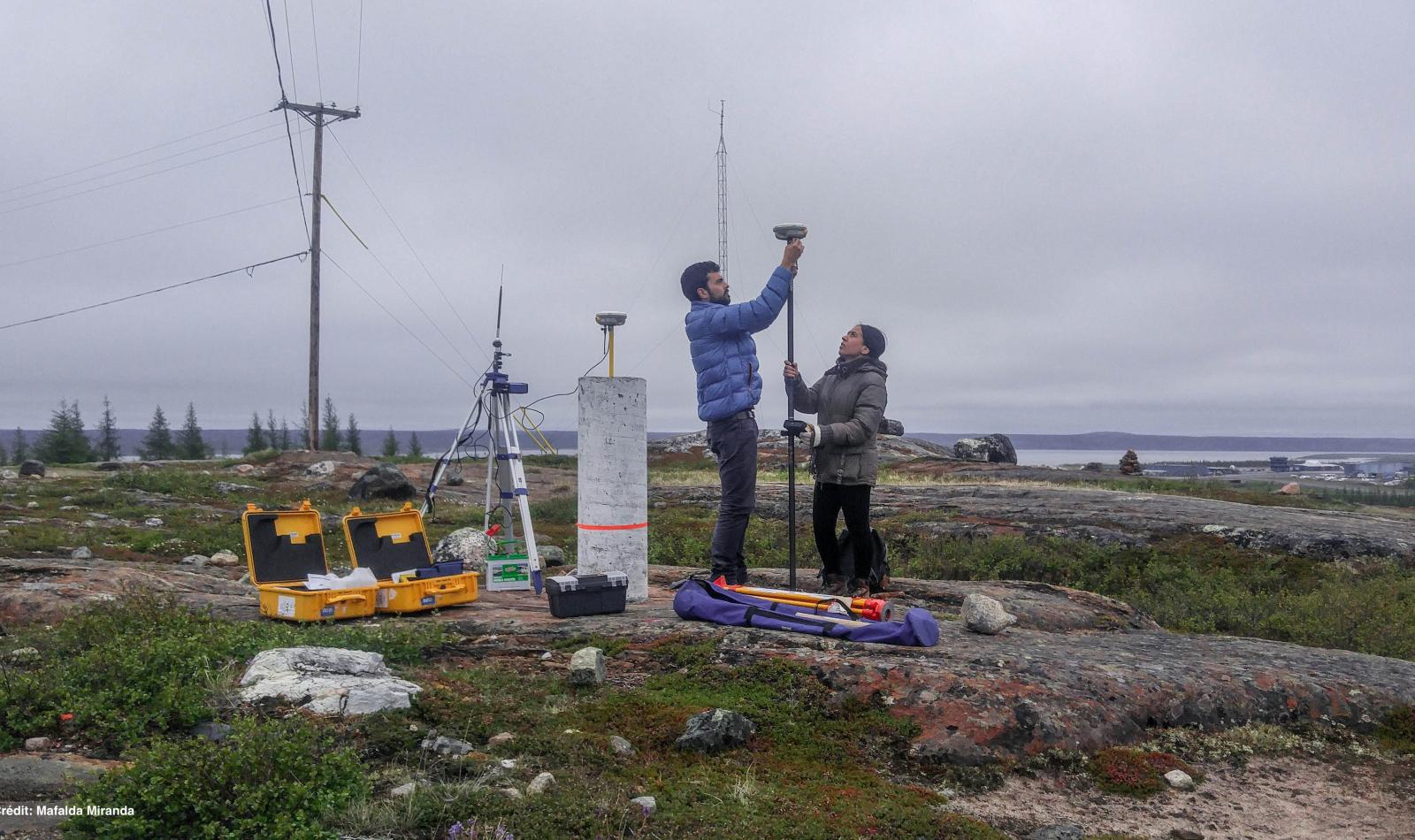
Introduction to Northern Research and Issues
2023 Theme: Knowledge Mobilization and Sharing
Institut nordique du Québec and its partners invite Quebec, Canadian and Indigenous students to gather at Auberge Duchesnay with mentors from academic, indigenous and non-native communities to develop the skills to carry out a campaign to mobilize and share knowledge resulting from northern research. The training will focus on approaches of co-construction approaches, applied communication methods and mutual respect for the knowledge of others.
The activity is offered in a hybrid mode. The selected participants will be expected to complete several preparatory online training modules prior to attending the immersive face-to-face training.
This training will be given alternately in English and French depending on the language of the speakers, bilingualism is required.
Places are limited to 25
Travel bursaries are available for selected candidates and will be awarded according to need and provenance.
Target participants:
Twenty-five graduate students, postdoctoral fellows and early career researchers from different disciplines undertaking a research project in Northern Quebec (>49°N) and the Canadian Arctic (>55°N) will be recruited.
Program (detailed program to come soon):
On the theme of knowledge mobilization, this activity aims to equip participants to interact with local communities when planning their projects, in order to best meet the needs of the population.
The themes that will be addressed are:
- Working with partners in northern communities
- Action research in an indigenous context
- Integrating indigenous epistemologies into collaborative research
- Applied communication methods (games, animation in an informal setting, storytelling, podcasts, art, music, etc.)
Networking is also an objective of this activity, and participants will benefit from a rich immersive experience in relation to students and practitioners from diverse backgrounds and disciplines, including members of indigenous communities.
Selected participants will also be invited to complete online training modules to enhance their general knowledge in the weeks leading up to the face-to-face experience. These modules, presented in the form of video clips and short texts, will focus on northern research, history and Indigenous culture in Quebec. Those selected should allow approximately 6-8 hours to complete this pre-course training.
Organizing Committee :
- Geneviève Degré-Timmons, APECS Canada
- Marie-France Gévry, Sentinelle Nord
- Catherine Girard, UQAC
- Stéphanie Guilherme, ULaval
- Danielle Halle, APECS Canada
- Isabelle Laurion, INRS
- Martine Lizotte, ArcticNet
- Marie-Eve Marchand, INQ
- Sophie Pouillé, APECS Canada
- Loretta Robinson, Naskapi Nation of Kawawachikamach
- Andréanne Bernatchez (INQ)
- Rachel Hussherr (INQ/Rive)
- Pierre-Yves Savard, INQ
Application Process:
Those interested in participating in the training must provide the following documents:
- The completed application form including a short CV
Please contact Pierre-Yves Savard if you have any questions
Selection process:
Applications will be evaluated by the organizing committee according to the following evaluation criteria:
Relevance of the applicant's field of research to the topic of this training
Experiences and leadership potential of the individual
To provide a diverse experience, the committee will also pay particular attention to the diversity of disciplines and backgrounds of the applicants.
All applicants will be informed of the final selection by September 15, 2023.
Registration fee: $300
This amount includes :
Registration to the training course
Certificate of training equivalent to 4 CEUs
Your accommodation during the training
Meals :
October 31st (supper); November 1st and 2nd (all meals and coffee breaks);
November 3rd (breakfast, lunch, coffee break)
The fee does not cover:
Your travel to the training venue *
Your accommodation other than the training venue (if applicable)
* Travel grants are available for selected participants and will be awarded according to need and origin.
Partners
- Sentinelle Nord
- APECS Canada
- ArcticNet
- Nunavut Arctic College
- Secrétariat du Québec aux relations canadiennes - Programme d'appui aux relations canadiennes (PARC)
- Université Laval

